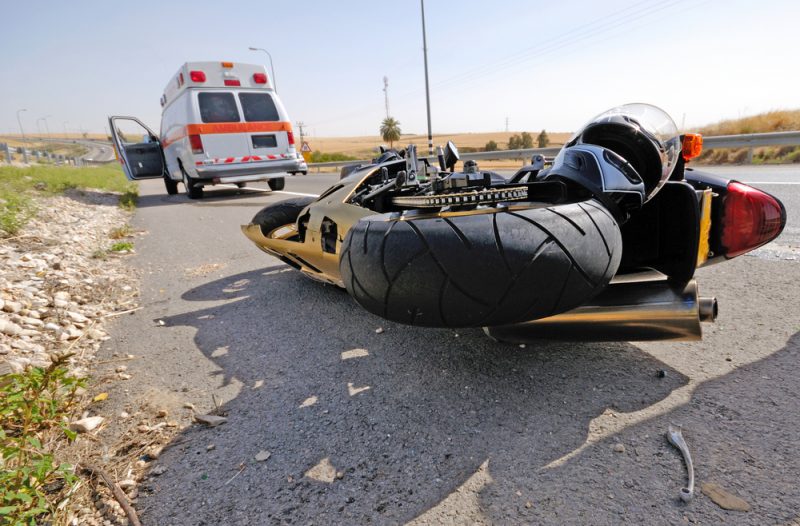
How to Calmly Handle Yourself After a Motorcycle Accident
You got in an accident. Even though you’re a safe motorcycle driver, it happened. Whether someone wasn’t paying attention or you cut it a little too close on a changing light, you need to collect yourself and begin sorting out what to do next. While your mind may be racing thinking of costs, damages, and potential injuries and medical bills, it’s important not to let yourself become too overwhelmed. Here is how to handle a motorcycle accident with a level head.
Gather Information
This is often the hardest part of an accident. You’re shaken up and unsettled. It’s hard to think straight. This is normal and to be expected. Take a few calming breaths to help clear your mind, get yourself to safety, move your motorcycle from the road if at all possible (unless it is leaking gasoline), and assess the situation. Ask yourself pertinent questions. Are there any injuries? Who was at fault? How did the accident occur? Are there any witnesses to provide supporting statements to the police?
Contact the authorities and let them know there’s been an accident. A police officer will take your statement about the accident and help facilitate the collection of insurance information from all parties involved. During this time, you’ll likely want to take photographs of the scene as well as of the vehicles. It’s also important to collect information about your surroundings. This includes nearby buildings, street signs, or other identifying landmarks. This helps you document damages and will prove useful to your insurance company, especially if you’re considering pursuing legal action.
Consider Next Steps
There are many reasons to consider pursuing legal action in the event of a motorcycle accident. If your insurance claim was denied, you were falsely accused of being at fault during the incident, or you sustained severe, costly injuries, you should contact a motorcycle accident lawyer. Make sure you find one that specializes in motorcycle accidents and not general auto accidents, as there are different legal considerations for different vehicles.
The information you collected when the accident occurred will prove invaluable here. If you were able to obtain witness testimonies your lawyer will take them into account when advising you on how to proceed. The photographic evidence will also be incredibly valuable to setting up a legal case. Depending on your lawyer, they may also be able to provide guidance when it comes to insurance claims to help make sure you aren’t undercompensated.
Looking Forward
One of the best ways to handle a motorcycle accident is to prevent it from ever happening. As a motorcyclist, you’re particularly vulnerable when you’re on the road. You don’t have common protections that car drivers do, such as airbags. This means that any time you’re taking your motorcycle out for a spin, you should wear protective gear, adjust your driving style to the day’s weather conditions, and never operate your motorcycle while intoxicated.
If you need to transport your motorcycle over long distances, it’s unwise to ride it cross country. Instead, you should look into an enclosed auto transport. It’s a secure method of protecting your valuable motorcycle and ensure it is safely shipped. Enclosed transports protect vehicles from security risks as well as inclement weather conditions so you’re able to rest easy knowing your ride will be transported unscathed.
The Road Ahead
As long as you’re taking the steps to make sure you’re always vigilant when you’re on the road, you’ll be less likely to be in a position where you have to navigate a motorcycle accident. If an accident does occur, do your best to remain calm and in control. Gather the necessary information, consider your next steps as well as future methods of accident prevention. While no accident is 100% preventable, you can do your part to make the road a safer place for cars and motorcycles alike.
